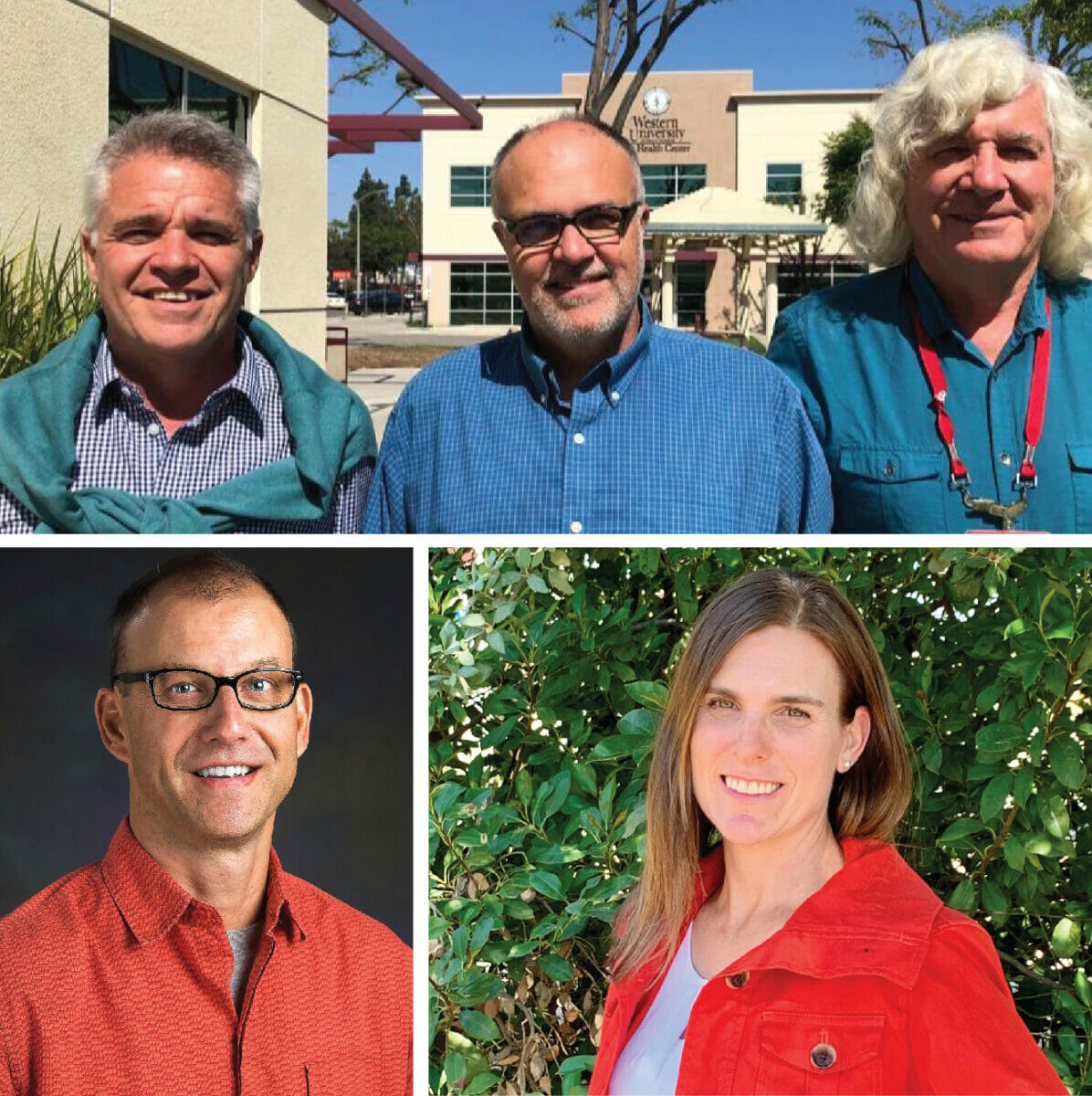
Faculty Spotlight: USDA SARE Grant Team
CVM Researchers Secure $339,038 USDA SARE Grant to Improve Calf Welfare in Conventional and Organic Dairy Farms

February 2022 – Western University of Health Sciences, College of Veterinary Medicine Professor of Animal Welfare, Jose Peralta (DVM, PhD, Dipl. ACAW, Dipl. ECAWBM), along with WesternU CVM collaborators Professor Brian Oakley (PhD), Professor Jim Reynolds (DVM, MPVM, DACAW), Professor Manel Lopez-Bejar (DVM, PhD), and UC ANR collaborator Betsy M. Karle, have received a $339,038 grant from the US Department of Agriculture (USDA) Sustainable Agriculture Research and Education (SARE). This grant will be used to look into the interaction of colostrum, calf housing and socialization, and the GI microbiome on calf welfare and health on dairies. The project is entitled “Effects of colostrum storage and housing style on health and welfare of pre-weaning calves in conventional and organic dairy farms.”
The project is focused on those conventional dairies with a history of antibiotic use as they compare to organic dairies to see if the GI microbiome and calf welfare and health is affected by antibiotic history on the dairy, colostrum handling, and individual versus group housing of calves. The data collected from this study will help to direct future approaches to antibiotic use, neonatal calf and microbiome management, and calf housing in dairies. This will be the first study to look into the interactions of several factors that affect calf health and welfare: bacteria and white blood cells in colostrum, antibiotic use on dairies, and individual vs. social housing of calves. The central hypothesis is that proper development of the microbiome and socialization of neonatal calves is important in the normal development of calf cognition and welfare. Antibiotic use, freezing colostrum, and individual housing may negatively affect the development, welfare, and health of calves.
The impact that different sources of colostrum have on the development of the microbiome and how this results in changes in the growth and development of healthy calves will be explored. Colostrum samples obtained from conventional and organic farms will be frozen and compared to fresh samples from the same farms, which will allow an assessment of the impact that colostrum management and the use of antibiotics has on the seeding of the young ruminant microbiome.
Dr. Peralta admits that what interests him most about this project is the potential for the strengthening of recommendations that would improve the way dairy calves are raised. The findings would elevate the possibility for an improved quality of life and would provide an insight into what effects dairy management of colostrum and calf housing has on neonatal calf welfare and health.
Dr. Peralta observes that “the idea of housing dairy calves in groups is already accepted as an improvement and we must continue looking for additional ways to improve the way producers raise them together…our study will allow us to define feeding and management routines that will result in better management in this housing model.”
It is his hope that dairy calves will be the primary beneficiaries of the study, but the results would simultaneously assist producers through an increased level of understanding on how to raise healthier dairy calves.

